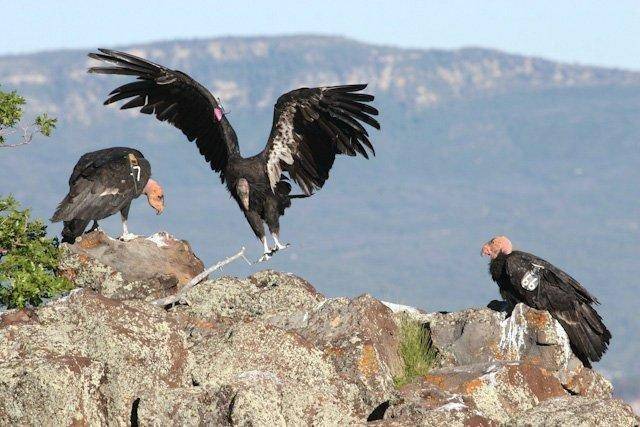DWR Press Release
Find out at free clinic
Hurricane – You can learn more about non-lead ammunition—and see how it performs in your firearm—at a free clinic on July 9.
The Division of Wildlife Resources and The Peregrine Fund are hosting the clinic to introduce hunters and livestock owners to non-lead ammunition and the advantages of using it.
The recent death of a male condor at Zion National Park illustrates the importance of using non-lead ammunition. Before it died, the male condor and its mate hatched a chick at the park. The father died of lead poisoning, however, leaving the mother to care for the chick alone. If the chick survives, it will be the first condor chick successfully raised in Utah since endangered condors were reintroduced to northern Arizona in 1996.
(Condors are scavengers. When they eat game animals, varmints or livestock—that have been killed with lead bullets or shotgun pellets—they ingest the lead.)
July 9 clinic
The July 9 clinic will be held at the Southern Utah Shooting Sports Park, 5850 W. 1800 S. in Hurricane. It runs from 8 a.m. to 4 p.m.
Free non-lead bullets, in 7mm and calibers .243, .30-30, .270, .300, .308 and .30-06 will be provided, so you can try the bullets in your firearm, to see how they work.
If you don’t have a firearm, no problem: rifles and free bullets will be available for you to try. If you don’t have much experience shooting, volunteers will be available to help you.
Non-lead advantages
Keith Day, regional wildlife biologist for the Division of Wildlife Resources, says non-lead bullets will bring an animal down just as effectively as lead bullets will. “Non-lead bullets are lighter than lead,” he says, “but they’re designed to mushroom rapidly when they hit. The rapid mushrooming allows non-lead bullets to deliver maximum hydrostatic pressure. That pressure is crucial to bringing an animal down.”
In addition to bringing animals down effectively, if you use non-lead bullets, you won’t be leaving lead fragments in gut piles for condors and other scavengers to ingest.
If you have questions about the July 9 clinic, call the Division of Wildlife Resources Southern Region office at 435-865-6100.

